
Giáo trình Thuật ngữ chuyên ngành Dầu và Khí 13
UNIT 3
CRUDE OIL DISTILLATION (FRACTIONATION)
1. Description
The first step in the refining process is the separation of crude oil into various
fractions or straight-run cuts by distillation in atmospheric and vacuum towers.
The main fractions or "cuts" obtained can be classified in order of decreasing
volatility into gases, light distillates, middle distillates, gas oils, and residuum.
2. Atmospheric Distillation Tower
At the refinery, the desalted crude feedstock is preheated using recovered
process heat. The feedstock then flows to a direct-fired crude charge heater
where it is fed into the vertical distillation column just above the bottom, at
pressures slightly above atmospheric and at temperatures ranging from 650 to
7000F (heating crude oil above these temperatures may cause undesirable
thermal cracking).
The fractionating tower, a steel cylinder about 120 feet high, contains
horizontal steel trays for separating and collecting the liquids. The trays permit
the vapors to bubble through the liquid on the tray, causing some
condensation at the temperature of that tray. An overflow pipe drains the
condensed liquids from each tray back to the tray below, where the higher
temperature causes re-evaporation. The evaporation and condensing
operation is repeated many times until the desired degree of product purity is
reached.
FIGURE I. ATMOSPHERIC DISTILLATION.

Giáo trình Thuật ngữ chuyên ngành Dầu và Khí 14
VOCABULARY
atmospheric / ,ætmәs'ferik/ : khí quyển
cause / k:z/ : gây ra
classify /'klæsifai/ : phân loại
condensation /,knden'sei∫n/ : sự ngưng tụ
desalt / di:'s:lt/ : Khử muối
distillation / ,disti'lei∫n/ : chưng cất
drain / drein/ : rút, tháo
evaporation / i,væpә'rei∫n/ : sự bay hơi
feedstock / ['fi:dstk/ : nguyên liệu
fraction / 'fræk∫n/ : phân số, phân đoạn
heater / 'hi:tә/ : lò = furnace /'fә:nis/
in order of : theo
light → middle → heavy : Nhẹ → Trung bình → Nặng
overflow pipe / 'ouvәflou/ : ống (vách) chảy chuyền
preheat / [,pri:'hi:t/ : đun nóng trước
pressure / 'pre∫ә(r)/ : áp suất
purity / 'pjuәrәti/ : độ tinh khiết
recover / ri:'kvә/ : thu hồi
residuum / ri'zidjuәm/ : cặn = residue / 'rezidju:/
separation /,sepә'rei∫n/ : sự phân cắt, phân chia
steel / sti:l/ : thép
step / ‘step/ : Bước, giai đoạn
temperature / 'temprәt∫ә/ : nhiệt độ
tower / 'tauә/ : tháp = column / 'klәm/
tray / trei/ : đĩa
undesirable / ,ndi'zaiәrәbl/ : không mong muốn
vacuum / 'vækjuәm/ : chân không
various / 'veәriәs/ : khác nhau
volatility / ,vlә'tilәti/ : độ bay hơi

Giáo trình Thuật ngữ chuyên ngành Dầu và Khí 15
DEFINITIONS
DISTILLATION Distillation is a process in which a liquid or vapour mixture
of two or more substances is separated into its component fractions of desired
purity, by the application of heat
STRAIGHT-RUN GASOLINE Gasoline produced by the primary distillation of
crude oil. It contains no cracked, polymerized, alkylated, reformed or visbroken
stock.
QUESTIONS
1. Which is the first step in the refining process?
2. What are the principal products obtained from ?
3. Which temperature
4. What are the two significant events in the end of 19th century?
GRAMMAR FOCUS
RELATIVE CLAUSES (ADJECTIVE CLAUSES)
I- Restrictive relative clauses. (Mệnh đề quan hệ giới hạn)
Relative pronouns: who, whom, which, that, whose
EX1: The man is my uncle. He is standing near the window.
⇒ The man who/ that is standing near the window is my uncle.
Ex2: The man is my uncle. You met him yesterday.
⇒ The man (whom/ that) you met yesterday is my uncle.
⇒ The man you met yesterday is my uncle.
EX3: The book is mine. It is on the desk.
⇒ The book which/ that is on the desk is mine.
Ex4: The book is mine. You are reading it.
⇒ The book (which/ that) you are reading is mine.
⇒ The book you are reading is mine.
Ex5: The woman is crying loudly. Her son was injured in the accident.
⇒ The woman whose son was injured in the accident is crying loudly
Ex6: The book is mine. The cover of the book is blue.

Giáo trình Thuật ngữ chuyên ngành Dầu và Khí 16
⇒ The book of which the cover/ the cover of which is blue is mine.
⇒ The book whose cover is blue is mine.
II- Non-restrictive relative clauses (Mệnh đề quan hệ không giới
hạn)
Relative pronouns: who, whom, which, whose.
Ex1: My father is going to France next week. You met him yesterday.
⇒ My father, whom you met yesterday, is going to France next week.
Ex2: Torn is a student in my class. He has just won the school
scholarship.
⇒ Tom, who has just won the school scholarship, is a student in my
class.
Ex3: That hotel is near the beach. It's the most expensive.
⇒ That hotel, which is the most expensive, is near the beach.
Ex4: Charlie Chaplin died in 1977. His films amused millions.
⇒ Charlie Chaplin, whose films amused millions, died in 1977.
Ex5: Jack has three brothers. All of them are married.
⇒ Jack has three brothers, all of whom are married.
Ex6: Ann has a lot of books. She hasn't read most of them.
⇒ Ann has a lot of books, most of which she hasn't read.
III- Relative Adverbs: where, when, why
EX1: I'll never forget the day. We first met on that day.
⇒ I'll never forget the day when we first met.
Ex2: He has just come back to the village. He was born there.
⇒ He has just come back to the village where he was born.
EX3: She didn't tell us the reason. She gave up herjob that reason.
⇒ She didn't tell us the reason why she gave up her job.
IV- Relative pronoun That
<l> That can't be used after a comma, after a preposition.
Ex: Those men, who pulled me from the burning car, saved my life.
⇒ She is the woman that I wrote to.
⇒ She is the woman to whom I wrote.
<2> That must be used
a) After mixed antecedent. (for person and for object)

Giáo trình Thuật ngữ chuyên ngành Dầu và Khí 17
Ex: The people and cattle that went to the market raised a cloud of
dust.
b) After adjectives in superlative degree or after the first, the second, the
last.
Ex: Paris is the finest city that he has ever seen.
Mr Lepzig was the last man that left the office.
c) After all, everybody, everything, nothing, nobody, only
Ex: Answer all the questions that I asked.
I bought the only English book that they had.
d) After It is/it was
Ex: It was he that killed the lion.
EXERCICES:
1- I have always wanted to come to New York, _____ famous city of the USA.
a. which b. a c. that's a d. is the
2- The severe drought _____ took place last summer ruined the rice crop.
a. it b. that c. that's d. which is
3- People who exercise often have better physical endurance than those
_____
a. who don't b. who doesn't c. doesn't d. don't
4- Have you seen the place ____ the wedding ceremony will be held?
a. which b. where c. in where d. is where
5- Edgar's wife. _____ has written several papers on this subject, is a
university professor.
a. who b. whose c. that d. whom
6- Mr. Marple is a person _____ have much confidence.
a. I b. whom I c. in whom I d. in that I
7- Mary gave up the job at the advertising agency, _____ surprised everybody.
a. which b. that c. who d. where
8- New York, _____ I'd love to visit one day, is a wonderful city.
a. where b. which c. that d. to which
9- That girl over there, _____ I don't remember, came here yesterday.
a. which name b. whose name c. her name d. the name of whose
10- On the way this morning, we saw a lot of soldier and tanks _____ moved
to the front line
a. which b. that c. who d. whom


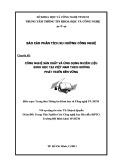


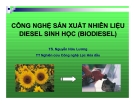
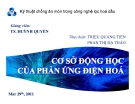
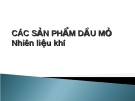



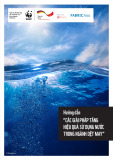

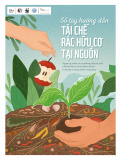
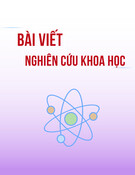

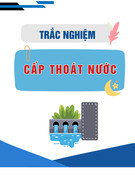
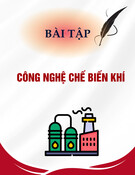
![Đề cương môn Công nghệ chế biến khí [năm học]](https://cdn.tailieu.vn/images/document/thumbnail/2025/20250910/thangkho12072002@gmail.com/135x160/88581757470791.jpg)

![Đề cương Công nghệ Polyme và Compozit [mới nhất]](https://cdn.tailieu.vn/images/document/thumbnail/2025/20250901/hungngao2711/135x160/24771756869342.jpg)
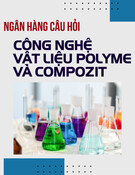

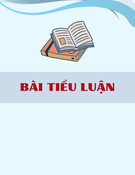
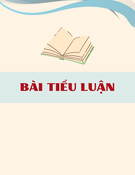
![Ứng dụng kỹ thuật trao đổi ion trong điện phân: Bài tiểu luận [chuẩn nhất]](https://cdn.tailieu.vn/images/document/thumbnail/2025/20250829/sonphamxuan1808/135x160/97341756442892.jpg)
